Basic Math Skills Geometry Worksheets for Ages 3-4
5 filtered results
-
From - To
Discover our engaging Basic Math Skills Geometry Worksheets designed specifically for children aged 3-4! These worksheets introduce young learners to the fundamentals of geometry through fun and interactive activities. Little ones will explore shapes, sizes, and spatial relationships, fostering their critical thinking and problem-solving skills. Each worksheet is crafted to captivate young minds with colorful illustrations and simple exercises, making learning enjoyable. Parents and educators will appreciate these resources for enhancing early math skills while preparing children for future academic success. Perfect for at-home learning or classroom use, our worksheets help cultivate a solid early foundation in geometry!
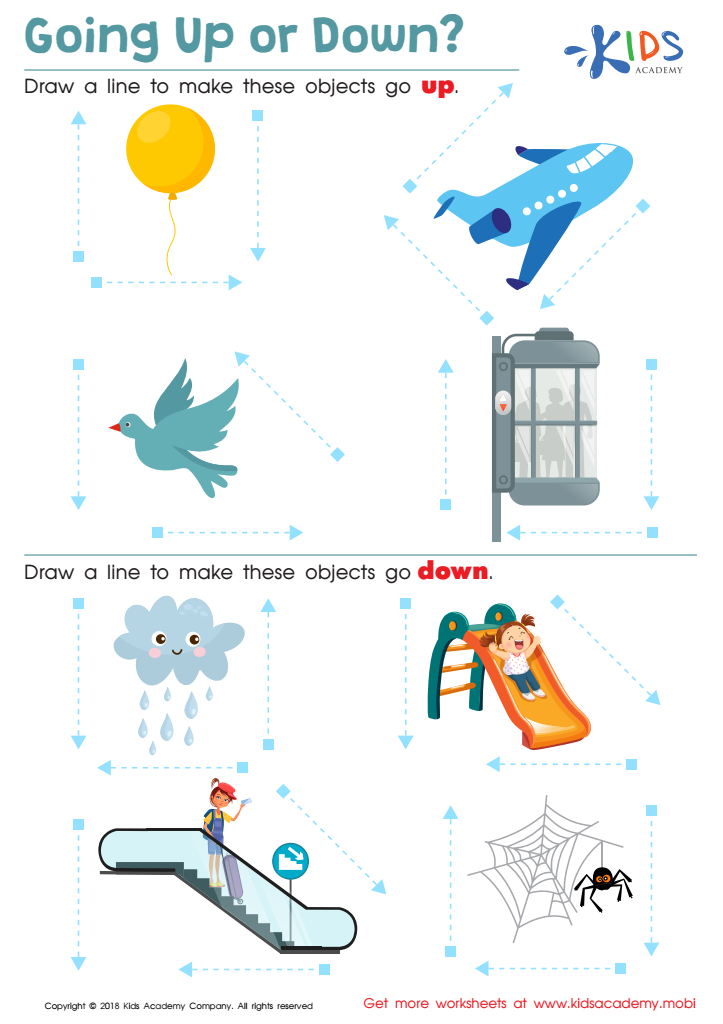

Going up or Down? Worksheet
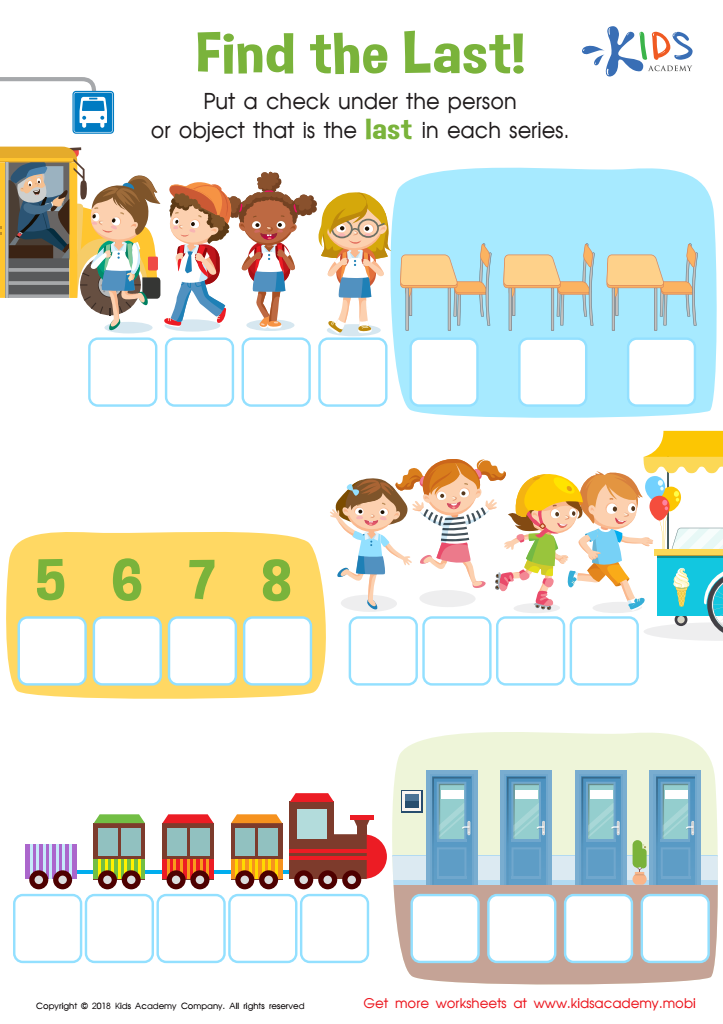

Find the Last! Worksheet
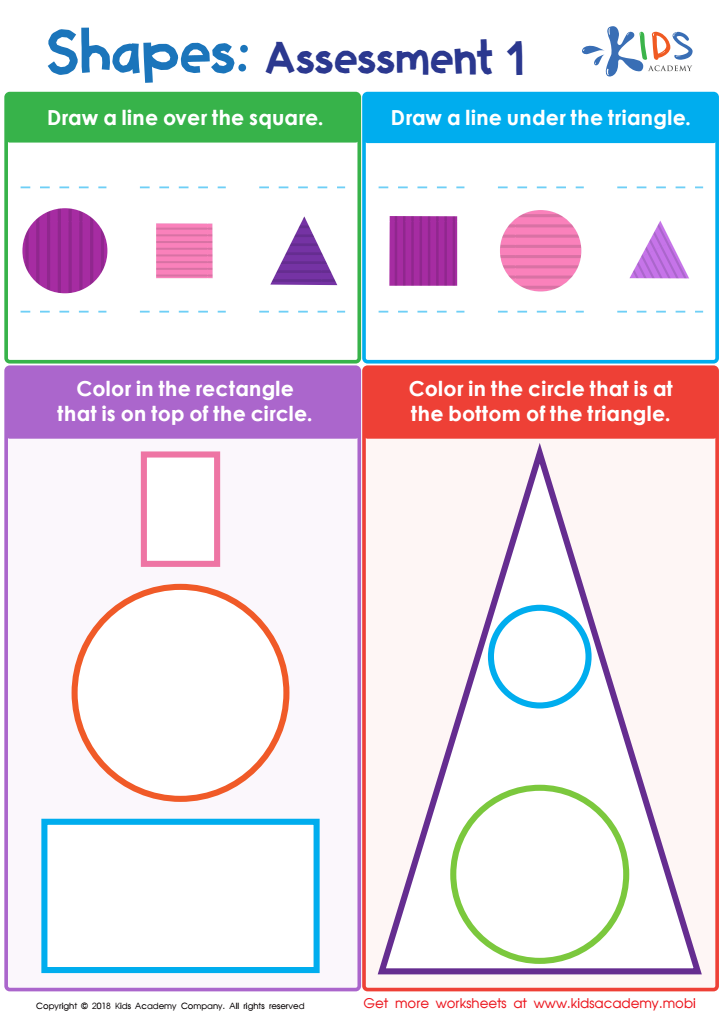

Shapes: Assessment 1 Worksheet
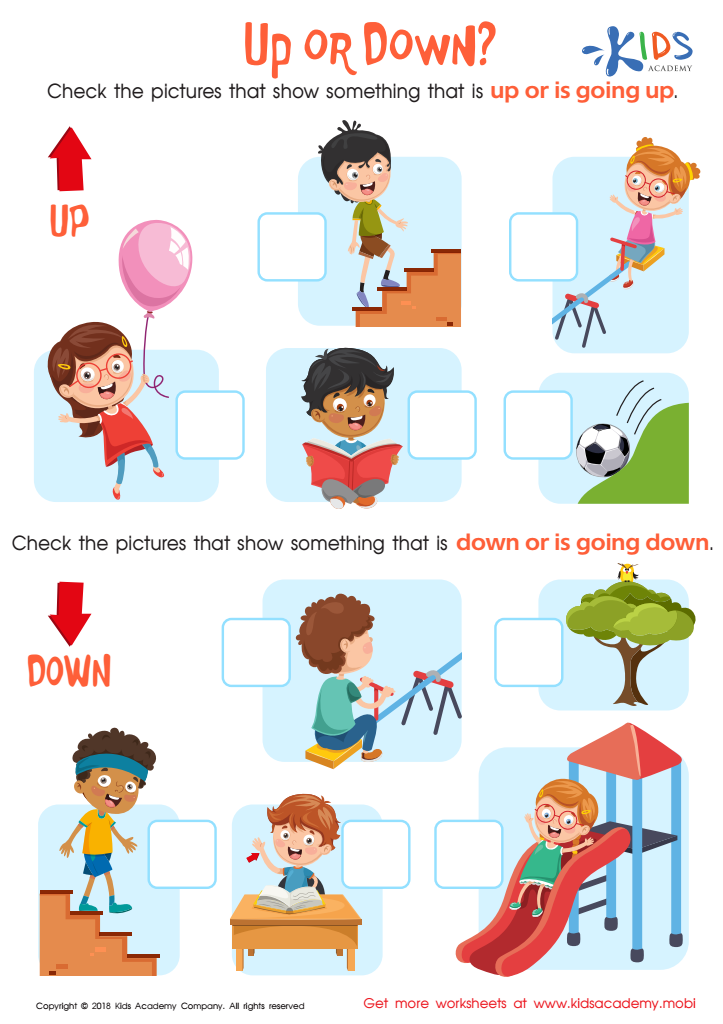

Up or Down Worksheet
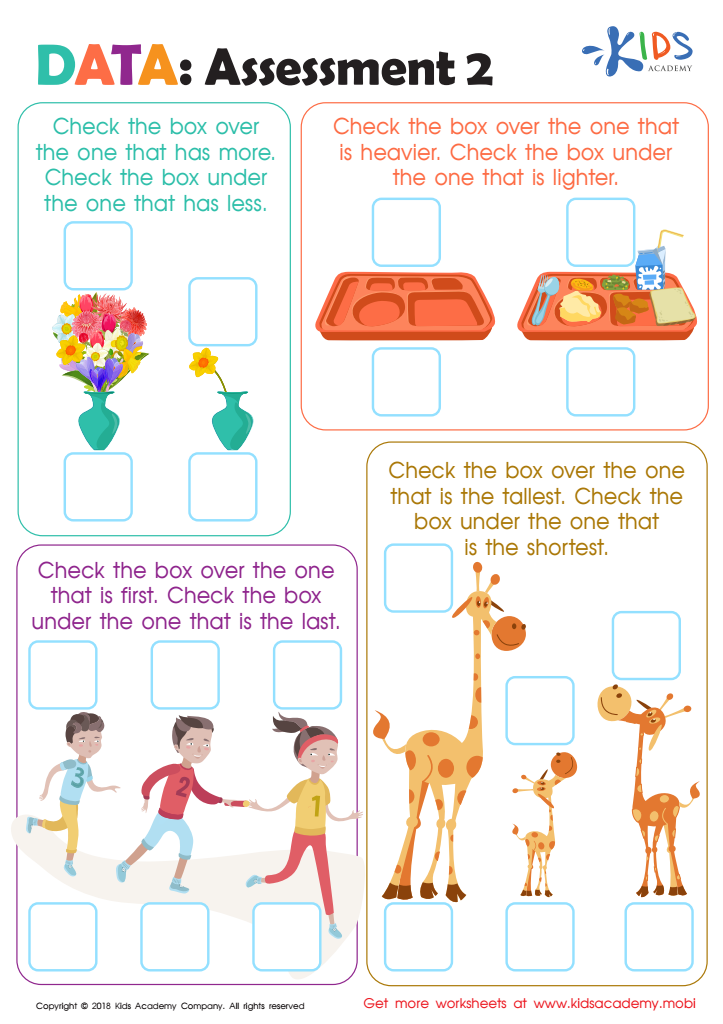

Data: Assessment 2 Worksheet
Basic math skills, particularly geometry, are essential for children ages 3-4 as they lay the foundation for critical thinking and problem-solving abilities. At this stage, children are naturally curious and eager to explore their environment, making it the perfect time to introduce geometric concepts. Understanding shapes, spatial relationships, and sizes helps enhance their cognitive development and boosts their observational skills.
Engaging children in geometry allows them to make connections with the world around them. For instance, recognizing shapes in everyday objects such as a circle in a wheel or a square in windows helps to reinforce their understanding and makes learning relevant. Additionally, activities such as sorting, stacking, and drawing shapes promote fine motor skills and encourage creativity.
Early exposure to geometry also nurtures mathematical readiness, preparing children for more complex concepts they will encounter later in their education. It builds a solid grasp of foundational skills that can lead to improved academic performance in math-related subjects.
Parents and teachers should care about teaching geometry to young children not just for academic reasons, but to enhance their overall development, foster a love of learning, and build confidence in exploring mathematical concepts creatively and confidently.
 Assign to My Students
Assign to My Students



























